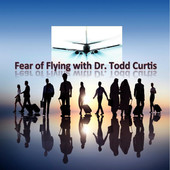The TSA's misguided efforts with respect to this passenger screening policy, as well as apparent serious shortcomings in TSA hiring procedures have been discussed at length in earlier AirSafeNews.com articles, and in unprecedented ways by the general public online and offline.
It would be easy and even entertaining to highlight multiple aspects of the latest TSA policy disaster, including:
- Reviewing some of the more interesting of the tens of thousands of TSA-related tweets from the past week (my favorite: "I wonder if TSA scanners can see through 6 feet of dirt to detect Founding Fathers turning in their graves"),
- Embed one or more hilarious video created in response to the TSA's policy, such as one from Saturday Night Live, and another from NMA TV (the folks who bring you computer simulations of unfaithful celebrities),
- Discuss the TSA's role in making the phrase "gate rape" an UrbanDictionary.com word of the day, or
- Chronicle desperate scramble by the TSA in the last 72 hours to change their policies in the face of massive pushback (eliminating enhanced pat-downs of children 12 and under, followed by no pat-downs or screenings of airline pilots, and most recently a promise to make the pat-down procedure less invasive)
Instead of kicking TSA when it's down and making it even more likely that current employees will erase their experience from their resumes, the rest of this article will focus on some of the positive things that TSA has done that have actually enhanced security.
 Every week, TSA publishes the Transportation Suspicious Incident Report (TSIR), which provides a comprehensive review of suspicious incident reporting related to transportation. The TSIR includes incident reporting, analyses, images, and graphics on specific security related incidents. In addition, selected articles focus on security technologies, terrorism, and the persistent challenges of securing various transportation modes in the US. You can download three of the reports below:
Every week, TSA publishes the Transportation Suspicious Incident Report (TSIR), which provides a comprehensive review of suspicious incident reporting related to transportation. The TSIR includes incident reporting, analyses, images, and graphics on specific security related incidents. In addition, selected articles focus on security technologies, terrorism, and the persistent challenges of securing various transportation modes in the US. You can download three of the reports below:- TSIR for 20 July 2007
- TSIR for 5 August 2010
- TSIR for 15 October 2010
All three of these reports were downloaded from PublicIntelligence.net, a site that provides access to corporate and government documents that are usually unavailable to the public. This site also provides a number of documents from the Department of Homeland Security, including an evaluation of the recent cargo bombing attempt from Yemen.
If you have any questions and comments may about the TSIR, you can contact the Transportation Security Administration, Office of Intelligence, Field Production Team at (703) 601-3142.
A note on classification
The document that were retrieved from PublicIntelligence.net contains information that the Department of Homeland Security, which includes TSA, typically does not released released to the public or personnel who do not have a valid "need to know." Because these reports were obtained legally from a publicly available web site, unless you are bound by the appropriate regulations of a US government agency, you are free to download them and even distribute them. This is similar to the situation last December when TSA accidentally released a report containing sensitive security information. That report, “Screening Procedures: Standard Operating Procedures,” has been downloaded from AirSafe.com nearly 25,000 times in the last 12 months.
Related Resources
WTOP interview on November 16, 2010 with Dr. Todd Curtis about new TSA procedures (5:12)
Dr. Curtis discusses TSA hiring practices on Rudy Maxa's World (10:40)














